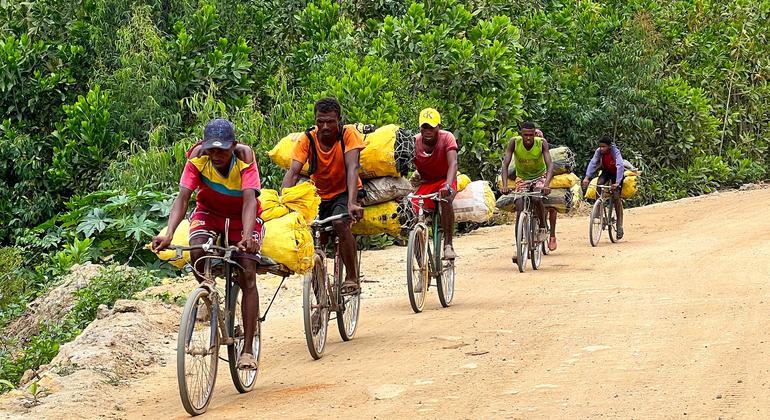The latest UN report on Sustainable Development Goals (SDGs) highlights the urgent need for increased investment and reform of the international financial system to address the significant challenges that have arisen in achieving the goals. Amina Mohammed, Deputy Secretary-General, emphasized the importance of finance in meeting the SDGs, as current projections suggest that 600 million people will still be living in extreme poverty beyond 2030. The financing gap for development is estimated at $4.2 trillion annually, up from $2.5 trillion before the COVID-19 pandemic, necessitating immediate action to mobilize funding at scale.
One of the major obstacles to achieving sustainable development is the escalating debt burdens and rising borrowing costs faced by many countries. In the least developed countries, debt service is projected to reach $40 billion annually between 2023 and 2025, a significant increase from $26 billion in 2022. Climate-related disasters are a major factor contributing to the debt upsurge in vulnerable countries, with over half of the increase attributed to these disasters. Additionally, approximately 40% of the global population, totaling 3.3 billion people, live in countries where government spending on interest payments exceeds that on education or health, further hindering progress towards the SDGs.
The report underscores the need for increased public and private investment in the SDGs, as well as reform of the development bank system to support sustainable development efforts. Donors are urged to fulfill commitments on Official Development Assistance (ODA) and climate finance, while reforms to the outdated international financial architecture are deemed essential. The current system, established nearly 80 years ago, is no longer deemed fit for purpose, and developing countries must have a greater voice in global economic governance to ensure more equitable decision-making processes.
In addition to financial reforms, addressing credibility gaps and trust deficits among world leaders is crucial for progress towards the SDGs. Wealthier nations, in particular, are called upon to fulfill promises on global governance reform, aid delivery, and domestic reforms to combat corruption and inequality, including gender inequality. Closing these gaps and building trust is essential for fostering collaboration and collective action towards achieving the SDGs.
Overall, the UN report underscores the critical need for immediate action to address the financing gap and reform the international financial system to support sustainable development efforts. By mobilizing funding at scale, increasing public and private investment in the SDGs, and implementing reforms to the outdated financial architecture, progress towards achieving the goals can be accelerated. Collaboration and trust among world leaders are essential to overcoming challenges and ensuring that the SDGs are achieved by 2030.









